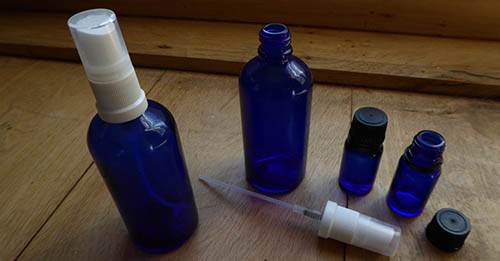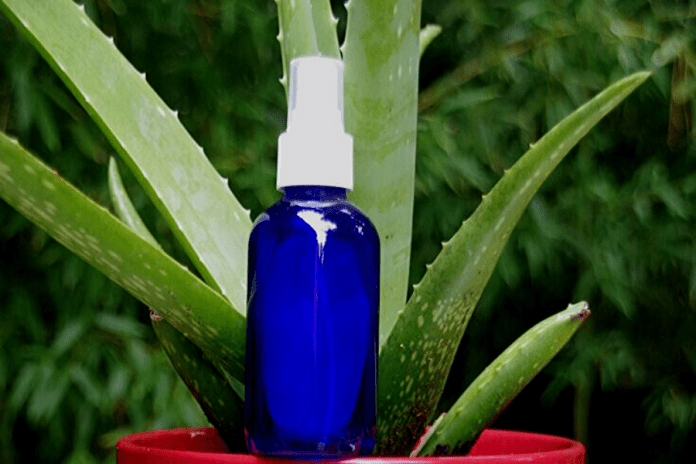Although thorough hand washing with soap remains the front line of protection against the bugs and viruses that currently circle the globe, carrying a hand sanitizer is important while traveling or leaving the home. This is an especially good backup to have when you know you’re going to be on the move and you can’t get to a sink to wash.
Using only natural ingredients, making your own homemade hand sanitizer is simple. You can feel comfortable that it does not contain any of the harsh chemicals found in most industrial sanitizers. Store-bought products tend to be laden with parabens, synthetic fragrances and sodium lauryl sulfate, all harmful to the human bio-system.
How To Use Hand Sanitizer
Much as with washing your face, hand sanitizer based on alcohol is only efficient when properly used. Rub it in your hands for at least 30 seconds, make sure that you cover your palms, the back of your hands, between your fingers and the fingernails around. Given the spread of coronavirus, the CDC advice about the use of a hand sanitizer should be noted:
“CDC recommends washing hands with soap and water whenever possible because hand washing reduces the amounts of all types of germs and chemicals on hands. But if soap and water are not available, using a hand sanitizer with at least 60% alcohol can help you avoid getting sick and spreading germs to others. The guidance for effective handwashing and use of hand sanitizer in community settings was developed based on data from a number of studies.”
Related: 5 Homemade Natural Cleaners
What Are The Benefits Of An Alcohol-Based Hand Sanitizer?
Despite its germ-killing properties alcohol has long been used for medicinal purposes. Alcohol is a natural disinfectant and is used as a standard for the treatment of burns and wounds. In a process called denaturation, alcohol dissolves bacteria, breaking down the membranes of the bacterial cells, so that they die off with ease. For a solution to be effective enough for disinfection, a minimum level of 60% alcohol is needed, while higher percentages can also be used for a stronger and more powerful effect.
Which Essential Oils Should I Use?
Also mainstream science recognizes the potent antibacterial and antiviral capabilities of essential oils. Mixing many essential oils together is a smart idea, so that you end up with the most powerful wide-spectrum solution. Tea tree oil has an excellent reputation and certainly worth having in your blend. A selection of oils known to have both antiviral and antibacterial properties are listed here:
- Tea tree
- Melissa
- Lemon
- Thyme
- Oregano
A Natural DIY Hand Spray Recipe
The recipe below is extremely quick and simple to produce. It only involves the simplest ingredients which are direct to the source. Not only does the essential oils make it smell fantastic but it even doubles up as a natural surface cleaner!
Equipment:
- 2oz glass or plastic spray bottle
- Funnel
Basic Ingredients:
- 1/2 tablespoon essential oils (organic if possible)
- 3 tablespoons of 75% proof alcohol (for example rubbing alcohol)
Optional Extra Ingredients:
- 15 drops vitamin E oil
- 1/4 tablespoons Aloe Vera gel (organic if possible)
Recipe Instructions:
- Pour 3 tablespoons of 75% proof alcohol into your spray bottle using a funnel.
- Add 10 drops of essential oils.
- Shake vigorously.


Please note that it is best practice to keep your hand sanitizer in a blue or amber glass bottle to keep its potency. A darker colored glass helps protect the essential oils against UV damage in such a way that a clear plastic or glass bottle can not do it. Personally, I also prefer to store my spray in a glass bottle because, as many plastics will do, it is guaranteed that no harmful synthetic chemicals are absorbed into my hand sanitizer.
Recipe Adaptions For Dry Skin
Alcohol can be drying to the skin, so it is worth playing with your recipe to make it more moisturizing when you are suffering from this problem. I prefer keeping things as simple as possible by following the above recipe and taking the time to hydrate my hands when it’s needed, but here are two options you can try for yourself when the all-in-one approach suits you best.
Organic Aloe Vera gel is another way to nourish the skin, but some people have found this to be less than desirable because it appears to clump. When you use Aloe Vera gel, make sure to thoroughly blend the mixture and consider putting it in a hand pump bottle instead of a spray bottle. Put it another way, try adding 15 drops of vitamin E oil to your sanitizer, as this will ease the alcohol’s drying effects.





















